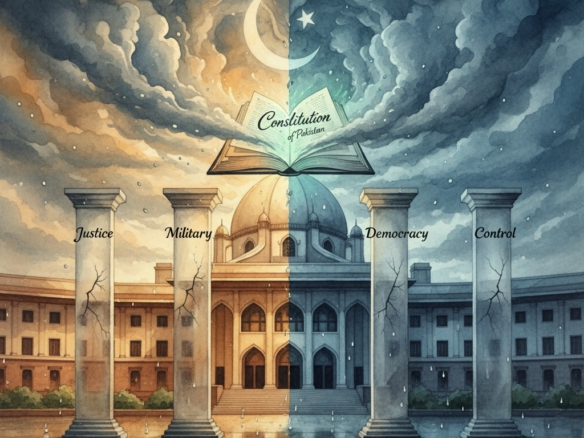Dubai Leaks 2024: Pakistani Elites Exposed in Dubai’s Property Scandal
The “Dubai Leaks 2024” has sent ripples through global financial circles, exposing the clandestine ownership of luxury properties in Dubai by a diverse array of individuals, including political figures, globally sanctioned individuals, and alleged criminals. This extensive investigation, part of the “Dubai Unlocked” project, reveals the depth of Dubai’s role as a haven for laundered money and illicit wealth. This article delves into the critical findings of the leaks, highlighting the implications for global finance and governance.
Dubai Unlocked: The Core of the Investigation of Dubai Leaks 2024
The “Dubai Unlocked” project, led by the Organized Crime and Corruption Reporting Project (OCCRP), uncovered data that includes around 54,000 addresses with 129,000 owners from 181 countries (Geo TV) (FinUncovered). This extensive data set reveals how Dubai’s secretive property register has facilitated the influx of illicit wealth, making the city a prime destination for money laundering. Properties owned by world leaders, business moguls, and individuals linked to organized crime underscore the scale of this financial underworld.
Key Revelations and Pakistani Figures Involved
Among the notable findings, several prominent Pakistani figures have been identified as property owners in Dubai. Interior Minister Mohsin Naqvi confirmed that a property under his wife’s name, mentioned in the leaks, had been sold and declared to tax authorities (Geo TV). Defense Minister Khawaja Asif dismissed the leaks as redundant information, reminiscent of the Panama Papers, highlighting the persistence of such issues (Geo TV).
The list of Pakistanis named in Dubai Leaks includes former President Pervez Musharraf, former Prime Minister Shaukat Aziz, and political figure Faisal Vawda. These individuals, along with others, have been previously implicated in similar leaks, reflecting ongoing concerns about transparency and accountability in Pakistan (Geo TV) (FinUncovered).
Global Implications of Dubai Leaks 2024 and EU Response
The revelations have prompted significant international reactions. The European Union is considering stricter measures against the UAE, including potential blacklisting, due to its inadequate enforcement of anti-money laundering regulations and ties to corrupt officials and Russian oligarchs (GAN Integrity). The EU’s actions aim to pressure the UAE into adopting more robust financial oversight to prevent the laundering of illicit funds.
The Broader Impact on Dubai’s Image
The Dubai Leaks have further tarnished the UAE’s reputation as a financial hub. While the country has taken steps to align its regulations with international standards, the persistent issues highlighted by the leaks suggest that more stringent measures are needed. Transparency International’s Advocacy Director, Casey Kelso, pointed to the “irony” of the UAE hosting the Conference of the States Parties to the United Nations Convention against Corruption, given the country’s ongoing challenges with financial secrecy (FinUncovered).
Conclusion
The Dubai Leaks 2024 have exposed a complex web of financial secrecy and illicit wealth, implicating numerous high-profile individuals and prompting calls for greater transparency and regulatory enforcement. As global scrutiny intensifies, the UAE faces mounting pressure to address these issues and restore confidence in its financial systems. For now, the revelations serve as a stark reminder of the ongoing challenges in combating global money laundering and corruption.



